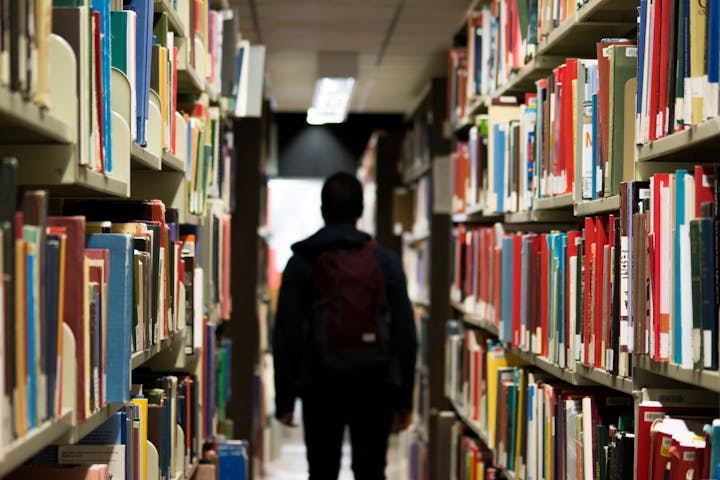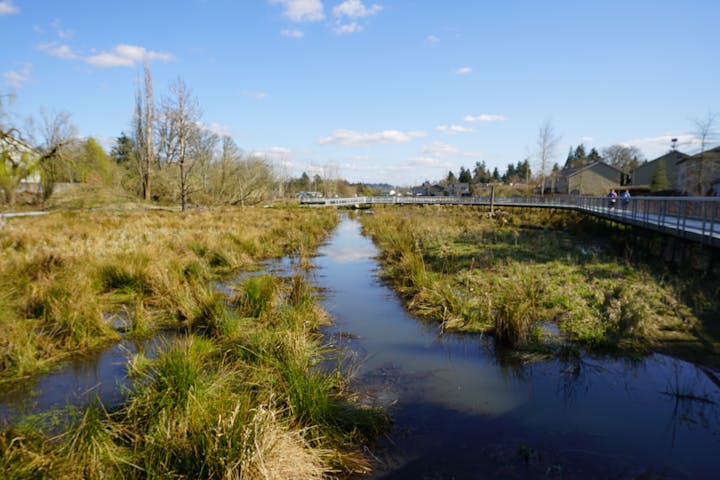Watershed Protection

Be a water protector.
Did you know that storm water receives no treatment?
Watershed protection occurs when all of us take small actions to reduce water pollution. These actions are required as part of the Municipal Separate Storm Sewer System Permit (MS4) Permit.
- The current MS4 Permit is posted here.
- The 2026 Stormwater Management Program (SWMP) PUBLIC REVIEW DRAFT is posted here.
- Pick up pet waste.
- Inflate your tires to keep microplastics out of road runoff.
- Maintain your car to prevent oil drips.
- Compost leaves and grass clippings to keep them out of the storm system.
- Use non-toxic alternatives to toxic pesticides and herbicides.
- Plant native ground cover and shrubs to create shade and prevent erosion.
- Mark storm drains with decals stating, “Dump No Waste, Drains to Streams”. Contact OLWS for free materials and instructions.
- Properly dispose of or recycle motor oil, antifreeze, paint, solvents and other toxic materials. For proper disposal information, call Metro Recycling Information at (503) 234-3000.
- If you would like to do more, visit the North Clackamas Watersheds Council for volunteer opportunities in your community.
In our area of unincorporated Clackamas County, Oak Lodge Water Services partners with 12 jurisdictions to implement the MS4 Permit as required by the Oregon Department of Environmental Quality (DEQ) under the National Discharge Elimination System (NPDES).
The permit requires human efforts to keep pollution out of waters of the state.
Oregon DEQ bases the requirements in part on the Water Quality Status and Trends Analysis.
If you have any comments or questions regarding this information, please contact Tessie Prentice, Assistant District Engineer at tessie.prentice@olws.org or by phone at (503) 353-4226.
- Rain washes over streets, roofs, lawns, and parking lots, picking up trash, oil, sediment, bacteria, pesticides, chemicals and metals from tires or brakes.
- Stormwater runs into catch basins, pipes, ditches, creeks, streams, rivers, and eventually into the oceans.
- Polluted runoff runs into our local waterways harming fish and aquatic life.
i. Annually inspects all catchbasins in one of five zones of OLWS.
ii. Conducts catchbasin and line cleanings as needed based on results of requested inspections.
iii. Provides routine customer service response throughout the District, and route emergency service requests to Clackamas County for emergency response. Clackamas County Department of Transportation and Development (CCDTD) responds to flooding of roads, safety risks, or additional ditch cleaning, street sweeping, and winter road maintenance.
iv. Responds to routine service requests from CCDTD; communicates back to CCDTD about the nature of the resolution.
v. Collects and shares water quality data with CCDTD for the MS4 Annual Reports.
 Contact Us
Contact Us




.png?ixlib=rb-1.1.0&or=0&w=720&h=411&fit=fill&fill=blur&auto=format%2Ccompress&s=6ed4edbe4c923417ca8c00c753638688)

.png?ixlib=rb-1.1.0&or=0&w=720&h=411&fit=fill&fill=blur&auto=format%2Ccompress&s=753ff677b82fd244dd585750b41a7aea)
